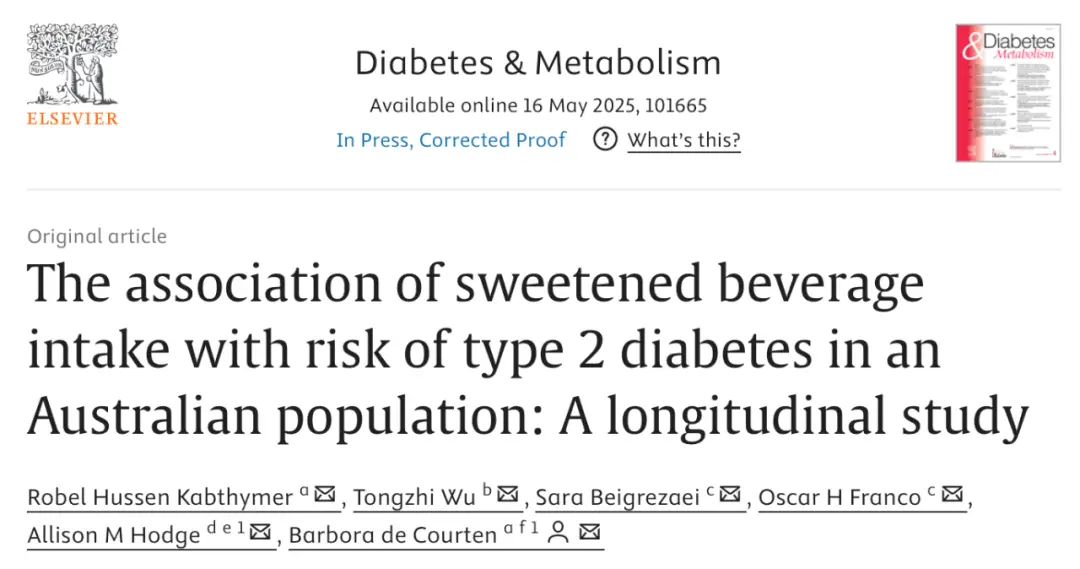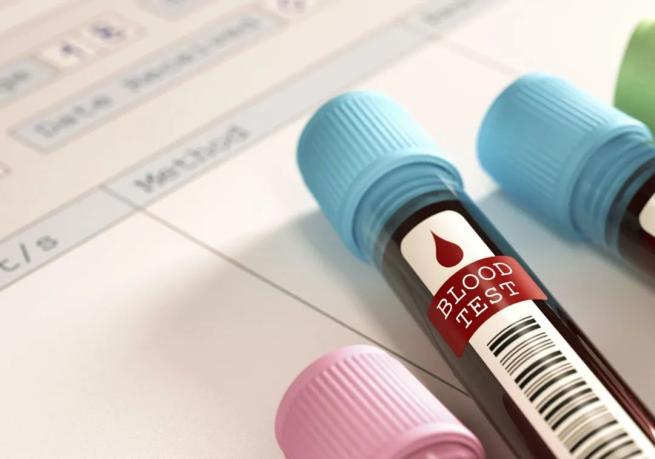In recent years, sugar-free beverages have rapidly occupied the market with the label "zero sugar, zero calories," becoming the preferred choice for those pursuing a healthy lifestyle. However, the latest scientific research has revealed a shocking fact—drinking just one cup (about 200ml) of sugar-free beverages containing artificial sweeteners daily increases the risk of developing type 2 diabetes by 38%, a figure even higher than the 23% risk increase associated with sugary drinks. This finding completely overturns the common perception that sugar-free beverages are "healthy and harmless," prompting a reevaluation of the safety of artificial sweeteners by the medical community and the public. This article will delve into the scientific mechanisms by which sugar-free beverages increase diabetes risk, comprehensively explore other potential health hazards they may pose, and provide practical recommendations for healthier beverage choices based on the latest research evidence, helping readers truly protect their metabolic health while enjoying delicious drinks.

A large-scale study conducted by Monash University in Australia over 14 years, tracking 36,000 Australians aged 40-69, showed that drinking one cup of sugar-free beverages containing artificial sweeteners daily is significantly associated with a 38% increase in type 2 diabetes risk. This finding is ironically striking—artificial sweeteners, originally intended to replace sugar to reduce the risk of obesity and diabetes, actually have the opposite effect. Even more concerning is that when researchers included weight factors in their analysis, the association between sugary drinks and diabetes weakened significantly, indicating that sugary drinks primarily increase diabetes risk indirectly through causing obesity; whereas the risk increase from sugar-free beverages is independent of weight factors, meaning that even if the drinkers do not gain weight, their diabetes risk still rises significantly.
Research from Harvard University further adds that individuals who consume more than two cups (about 480ml) of beverages containing artificial sweeteners daily have an additional 11% increase in diabetes risk. A study by Professor Mu Yiming's team at the General Hospital of the People's Liberation Army emphasizes the cumulative effect over time: drinking one cup of sugar-free beverages daily for 3-4 consecutive years significantly elevates the risk of diabetes and atherosclerosis, as the sweetener components interfere with the body's metabolic functions over the long term. These research results point to a public health issue that cannot be ignored—sugar-free beverages are by no means the "safe alternatives" once thought, and their potential harm to metabolic health may be more severe than that of sugary drinks.
It is noteworthy that research teams from different countries have reached similar conclusions in different populations. The French NutriNet-Santé cohort study, which included 108,643 participants, found through detailed dietary data analysis that foods containing sweeteners like aspartame and sucralose are significantly associated with a higher incidence of type 2 diabetes. The consistency of results from these multinational studies greatly enhances the scientific credibility of the conclusion that "artificial sweeteners increase diabetes risk."

How do artificial sweeteners increase diabetes risk without providing actual calories? Scientists have revealed several possible biological mechanisms, which together form the "sweet trap" of sweeteners on the human metabolic system.
Disruption of the insulin signaling system is one of the core mechanisms. When sweeteners stimulate taste receptors in the mouth, the brain misinterprets that the body has ingested sugar, triggering pancreatic β-cells to secrete insulin in response to the "anticipated rise in blood sugar." However, no corresponding amount of glucose actually enters the bloodstream; this "false alarm" occurring repeatedly over time can lead to a gradual decrease in insulin receptor sensitivity, ultimately developing into insulin resistance—which is the key pathological basis of type 2 diabetes. A joint study from Sweden and China found that aspartame significantly increases insulin secretion via the vagus nerve while upregulating the expression of the inflammatory chemokine CX3CL1 in arterial endothelial cells, triggering vascular inflammation and exacerbating atherosclerosis.
Imbalance of gut microbiota is another important pathway. Multiple animal experiments have confirmed that common sweeteners like acesulfame and sucralose can significantly alter the distribution of gut microbial populations, leading to dysbiosis. This disruption can directly affect the host's glucose metabolism ability, inducing glucose tolerance abnormalities. Human studies have also observed that populations with long-term intake of artificial sweeteners have gut microbiota compositions highly similar to those of type 2 diabetes patients. The gut microbiota, as the body's "second genome," is crucial for maintaining normal metabolic functions, and the interference of sweeteners with it may be a key link in the increased risk of diabetes.
Disruption of appetite regulation constitutes a third pathway. The strong sweet signals provided by sweeteners and the "mismatch" with energy intake can disrupt the brain's precise regulation of energy balance. When the brain repeatedly receives sweet stimuli without the expected energy compensation, it may enhance cravings for high-calorie foods through compensatory mechanisms, leading to excessive calorie intake in subsequent diets. Research from the University of Texas Health Science Center found that individuals who drink more than two cans of sugar-free beverages daily have waist circumference increases of up to 500%, far exceeding expectations. This indirectly caused calorie surplus further exacerbates metabolic disorders and diabetes risk.

Additionally, sweeteners may also indirectly affect glucose metabolism by promoting fat storage and inducing low-grade inflammation. It is worth noting that different types of sweeteners may have varying mechanisms and intensities of action, but existing research is sufficient to indicate that long-term intake of artificial sweeteners poses multifaceted interference and threats to the body's metabolic balance.
In addition to significantly increasing diabetes risk, long-term consumption of sugar-free beverages is also closely associated with various other health issues, risks that are often obscured by the "zero sugar, zero calories" marketing label but pose substantial threats to overall health.
Cardiovascular system damage is one of the most severe additional risks of sugar-free beverages. An 11-year study by Harvard Medical School involving over 3,000 women found that women who drink more than two cans of sugar-free soda daily have a multiplied risk of kidney function decline. Even more concerning is that bisphenol A (BPA), a common endocrine disruptor found in sugar-free beverage packaging, is closely related to heart disease, obesity, and reproductive system issues. A large cohort study in France also showed a significant association between artificial sweetener intake and increased incidence of cardiovascular diseases. These findings suggest that the harm of sugar-free beverages to the cardiovascular system may be on par with their impact on glucose metabolism.
Dental health deterioration is another easily overlooked issue. Although sugar-free beverages do not contain sugar, their pH can be as low as around 3.2, which, while milder compared to battery acid (pH 1), is sufficient to dissolve tooth enamel. Data analysis from the University of Michigan indicates that adults who drink more than three cans of soda daily, regardless of sugar content, face serious dental erosion issues. While sweeteners themselves do not directly cause cavities, the high acidity of the beverages can irreversibly damage tooth structure, and long-term accumulation can lead to tooth sensitivity, cavities, and even tooth loss.
Ineffective weight management sharply contrasts with common perceptions. Research from the University of Texas Health Science Center revealed a paradox: the more sugar-free soda a person drinks, the higher their risk of weight gain. As mentioned earlier, this is likely related to sweeteners interfering with appetite regulation and stimulating high-calorie food intake. Although some studies presented at the 2024 European Obesity Congress suggested that sweeteners might help maintain weight loss effects, most long-term observational studies show that the proportion of weight gain among sweetener users is higher than that of non-users. This contradictory result suggests that the impact of sweeteners on weight may vary depending on usage scenarios and individual differences, but viewing them as "weight loss miracles" clearly lacks scientific basis.
The impact on the nervous system is also gradually receiving attention. Some studies indicate that certain artificial sweeteners may cross the blood-brain barrier, directly affecting central nervous system function. Although the specific mechanisms are not yet fully understood, the association between long-term high intake of sweeteners and headaches, mood swings, and even cognitive decline has raised concerns among researchers. Additionally, the potential impact of sweeteners on the neurological development of children is particularly noteworthy, though related research remains limited.

It is especially important to note that preservatives in sugar-free beverages, such as sodium benzoate or potassium benzoate, are associated with allergic diseases like urticaria and asthma. Although many manufacturers have switched to other preservatives, the health impacts of these chemical additives on sensitive populations should not be overlooked. Overall, sugar-free beverages are by no means the "harmless alternatives" once thought; their potential threats to health are multi-systemic and multifaceted, and consumers should maintain a rational understanding of them.
